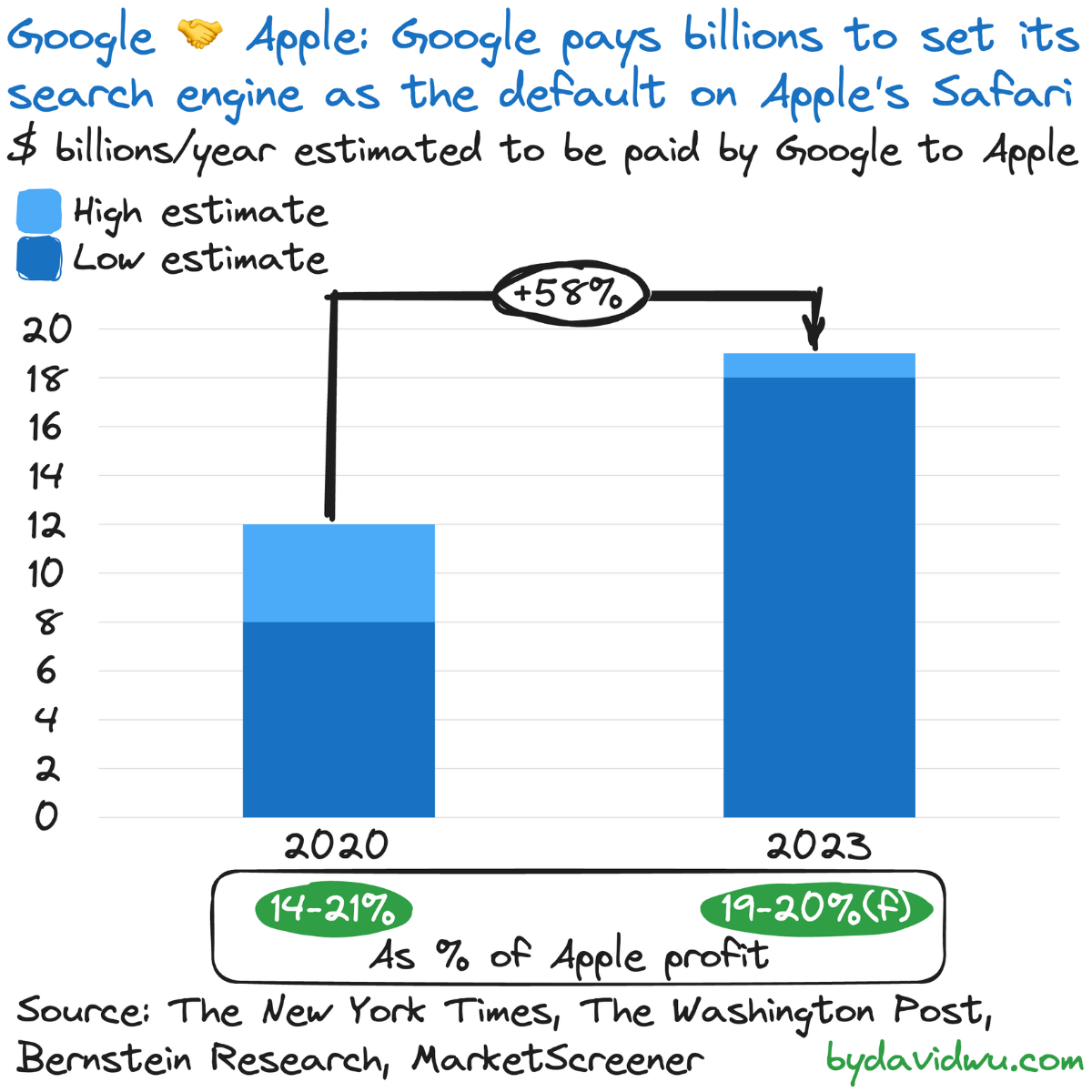🌏 #5 | US v. Google: The power of web browser search engine defaults
A fortnight ago, the trial for US v. Google kicked off in a Washington DC courtroom, the biggest tech antitrust case since US v. Microsoft 25 years ago.
The federal government and eight states claim that the search-engine provider has violated the Sherman Act by using its dominant market position to stifle competition.
🔎 The opening salvo: search engine defaults
Over the next two months, practices involving three key Google technologies will come under scrutiny: Search, Android and Search Ads 360.
The plaintiff’s opening salvo has focused on Google’s practice of striking agreements with web browser providers to set Google Search as the default search engine.
🌐 Default search engines of the major browsers
The major browsers all have default search engines, with the top four by usage share being Google Chrome (66%), Apple’s Safari (19%), Microsoft Edge (4%) and Mozilla Firefox (3%) per StatCounter.
Unsurprisingly, Chrome and Edge preselect each companies own search engines.
Safari and Firefox use Google out of the box — a privilege Google pays for.
🤝 Google’s agreements with Apple and Mozilla
🍏 Apple
In the case of Apple, Google pays handsomely, an estimated $8-12 billion annually by 2020, 14-21% of Apple’s profit that year, per The New York Times. The figure this year is estimated to be $18-19 billion, per Bernstein Research in The Washington Post.
🦊 Mozilla
Although Firefox’s heydays peaked in 2010 with over 30% usage share, provider Mozilla currently receives some $450 million annually to preselect Google Search. Per Bloomberg, these payments made up 83% of Mozilla’s revenue in 2021.

👍 👎 Good Google, bad Google?
The trial has so far highlighted three key issues about search engine defaults:
1️⃣ Are default agreements fair?
Google’s position is that search engine preselection is standard industry practice and that browser providers choose Google over competitors like Bing because it’s the best. The plaintiff’s contend that these agreements stifle search engine choice and hold back rivals.
2️⃣ Are defaults easy to change?
The ease of switching from a default search engine to a preferred one has also come under scrutiny. Google claims that this takes two clicks on Safari desktop and four taps on an iPhone.
The plaintiff’s expert witness, Caltech behavioural economics professor Antonio Rangel, argues that defaults “generate a sizeable and robust bias towards the default” and highlights the 10 steps it takes to replace the Google Search widget on Android.
3️⃣ How important is data scale for search quality?
Another issue has been the importance of amassing search usage data to search result quality. Google argues that technology is the decisive factor. The plaintiffs contest this claim, arguing that default agreements provide a crucial data edge.
Two weeks down, eight to go.
🙌 If you enjoyed this week’s newsletter, consider liking the LinkedIn post for this piece. I really appreciate your support in helping this newsletter reach a wider readership.
✨ Did you spot a typo or think of a topic you’d like to read about? Hit reply and let me know.
📨 To ensure this newsletter doesn’t go into your spam folder, add me to your contacts.